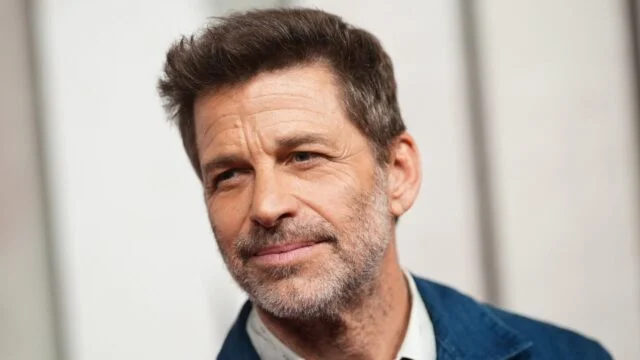Renowned filmmaker Zack Snyder, known for his blockbuster works like Justice League and the upcoming Rebel Moon, has made waves in the creative industry with his recent comments about artificial intelligence (AI). Speaking at The Big Interview by WIRED, Snyder encouraged filmmakers to embrace AI as a creative tool rather than resist its inevitable integration into the industry. His remarks come at a time when AI continues to spark heated debates across creative sectors, from film production to voice acting and beyond.
Snyder compared the rise of AI in filmmaking to the democratization of high-quality smartphone cameras. Despite these technological advances, he noted, “We don’t have millions of incredible films being uploaded from people’s pockets.” This, he argued, underscores the importance of human creativity in utilizing tools like AI effectively. Snyder urged creators to educate themselves on AI’s capabilities and limitations, emphasizing the need to adapt and innovate rather than “stand on the sidelines with your hands on your hips.”
The Role of AI in Filmmaking: Opportunities and Challenges
AI has already started to make its mark in the film industry, offering groundbreaking advancements in areas like visual effects, scriptwriting, and production design. Snyder highlighted one key advantage of AI: its ability to create complex, hard-to-reach visuals that would otherwise require hefty budgets. “AI doesn’t care if the house is on fire, if it’s on Mars, or underwater,” Snyder said. “All the things that would cost a filmmaker an exorbitant amount of money don’t make a difference to AI.”
This practical application of AI could democratize filmmaking, enabling independent creators to execute ambitious projects previously confined to big-budget studios. However, Snyder also acknowledged the need for balance. While AI offers immense potential, understanding its limitations and ethical implications is critical. “Educating yourself about what AI can and can’t do is crucial right now, especially in industries like storytelling and imagery,” he said.
The Wider Debate: AI’s Role in Creative Industries
Snyder’s comments add to the ongoing debate about AI’s place in creative industries. While some hail AI as a revolutionary tool, others view it with skepticism. Legendary filmmaker Tim Burton recently described AI-generated art as “deeply disturbing,” while voice actors in gaming, such as Grand Theft Auto V’s Ned Luke, have criticized AI for “effectively stealing income” through unauthorized use of their voices.
The controversy has also extended to companies like Wizards of the Coast, which faced backlash for allegedly using AI-generated imagery in Magic: The Gathering without transparency. These incidents highlight the ethical and economic challenges posed by AI, particularly for artists and performers whose livelihoods are directly impacted by its misuse.
Despite these challenges, Snyder remains optimistic about AI’s potential to augment human creativity rather than replace it. By fostering innovation and collaboration between humans and machines, he believes the film industry can unlock new possibilities while preserving its artistic essence.
Zack Snyder’s stance signals a pivotal moment for filmmakers and creatives grappling with the rise of AI. His call to action—to embrace AI as a tool rather than fear it—resonates with the broader need for innovation in an increasingly tech-driven world. While ethical questions and challenges remain, Snyder’s perspective underscores the importance of adaptability and education in leveraging AI responsibly.
As AI continues to evolve, its integration into filmmaking and other creative industries is inevitable. The key, as Snyder suggests, lies in understanding and harnessing its potential without losing sight of the human creativity that drives storytelling. By striking this balance, filmmakers and artists can ensure that AI serves as an ally in their creative journeys, opening doors to a future filled with endless possibilities.


